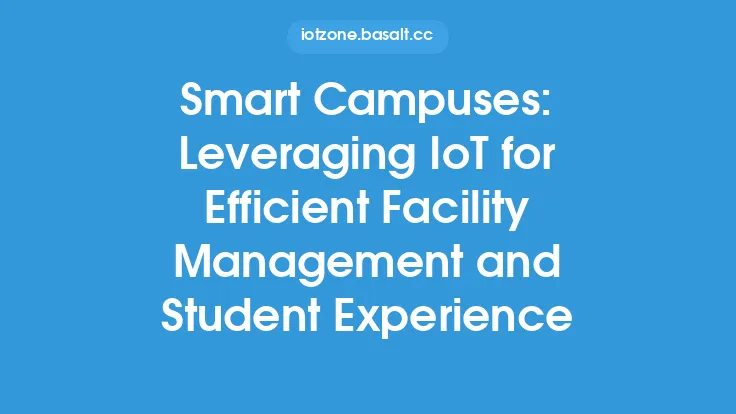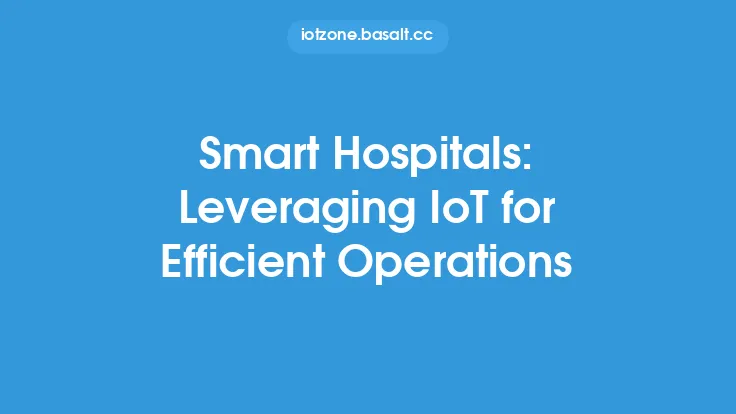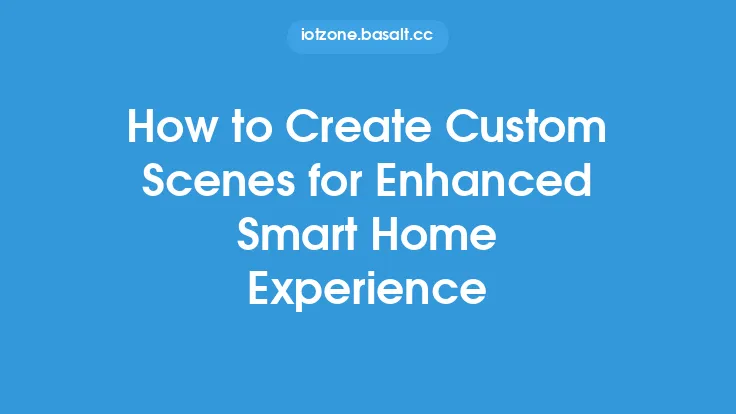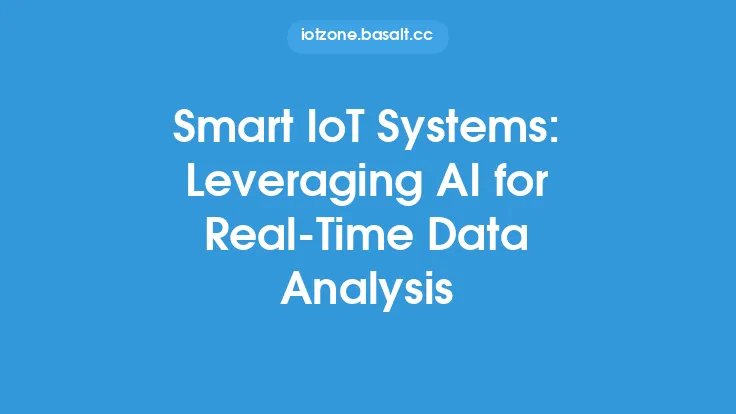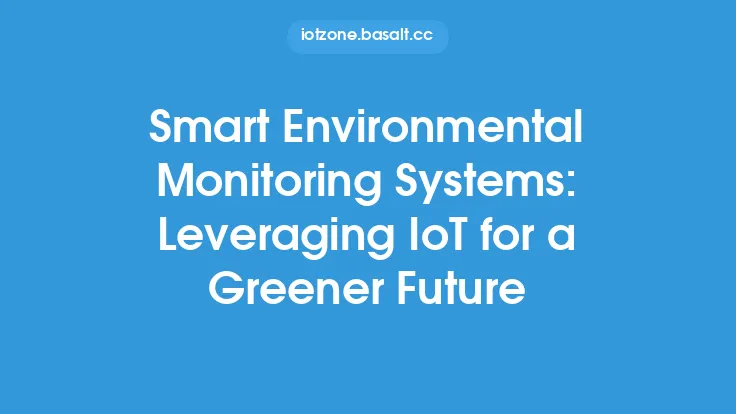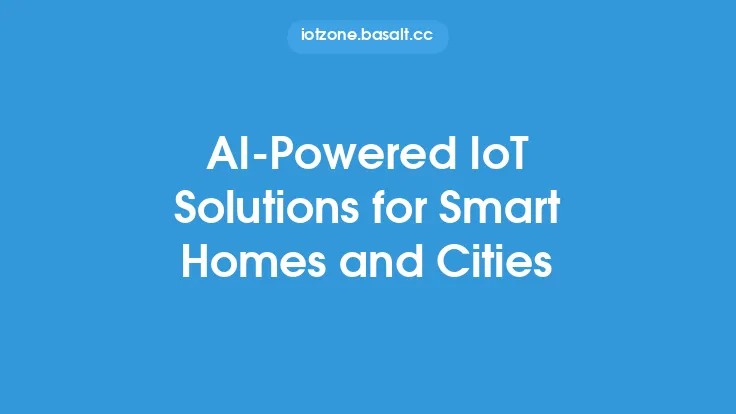The retail industry has undergone significant transformations in recent years, driven by advances in technology and changing consumer behaviors. One key trend that has emerged is the concept of smart stores, which leverage the Internet of Things (IoT) to create enhanced customer experiences. By integrating IoT devices and sensors into their operations, retailers can gather valuable insights into customer behavior, optimize store layouts, and provide personalized services that drive loyalty and sales.
Introduction to Smart Stores
Smart stores are physical retail locations that utilize IoT technologies to create immersive and interactive shopping experiences. These stores are equipped with a range of sensors, cameras, and other devices that collect data on customer behavior, preferences, and shopping patterns. This data is then used to inform decisions on store layout, product placement, and marketing strategies, enabling retailers to create a more engaging and personalized experience for their customers. Smart stores can take many forms, from small boutiques to large department stores, and can be found in a variety of retail sectors, including fashion, grocery, and electronics.
Key Technologies Used in Smart Stores
Several key technologies are used in smart stores to enable the collection and analysis of customer data. These include:
- RFID (Radio Frequency Identification) tags: These small devices are attached to products and can be used to track inventory levels, monitor product movement, and prevent theft.
- Beacons: These small devices use Bluetooth Low Energy (BLE) technology to transmit signals to customers' smartphones, providing them with personalized offers, promotions, and information about products.
- Wi-Fi sensors: These devices can be used to track customer movement and behavior within the store, providing insights into dwell times, traffic patterns, and other metrics.
- Computer vision: This technology uses cameras and machine learning algorithms to analyze customer behavior, such as detecting emotions, tracking gaze, and monitoring body language.
- IoT platforms: These platforms provide a centralized hub for collecting, analyzing, and acting on data from various IoT devices and sensors.
Benefits of Smart Stores
The benefits of smart stores are numerous and can have a significant impact on a retailer's bottom line. Some of the key benefits include:
- Improved customer experience: By providing personalized services and offers, smart stores can create a more engaging and immersive experience for customers, driving loyalty and sales.
- Increased operational efficiency: Smart stores can optimize inventory management, reduce waste, and improve supply chain operations, leading to cost savings and improved profitability.
- Enhanced customer insights: The data collected by smart stores can provide valuable insights into customer behavior and preferences, enabling retailers to make informed decisions about marketing strategies, product development, and store layout.
- Competitive advantage: Retailers that adopt smart store technologies can differentiate themselves from competitors and establish a leadership position in the market.
Challenges and Limitations
While smart stores offer many benefits, there are also several challenges and limitations that retailers must consider. These include:
- Data privacy and security: The collection and analysis of customer data raises concerns about privacy and security, and retailers must ensure that they are complying with relevant regulations and protecting customer information.
- Technical complexity: The integration of IoT devices and sensors can be technically complex, requiring significant investment in infrastructure, software, and personnel.
- Cost: The implementation of smart store technologies can be expensive, and retailers must carefully consider the return on investment (ROI) and ensure that the benefits outweigh the costs.
- Change management: The adoption of smart store technologies requires significant changes to business processes and operations, and retailers must ensure that they are managing these changes effectively.
Real-World Examples
Several retailers have already implemented smart store technologies, with impressive results. For example:
- Walmart: The retail giant has implemented a range of smart store technologies, including RFID tags, beacons, and computer vision, to improve inventory management, enhance customer experience, and optimize store operations.
- Target: The retailer has introduced a smart store concept that uses IoT devices and sensors to provide personalized services and offers to customers, including mobile checkout and personalized recommendations.
- Amazon: The e-commerce giant has opened a range of physical stores that utilize smart store technologies, including computer vision and machine learning, to provide a seamless and personalized shopping experience.
Future Developments
The future of smart stores is exciting and rapidly evolving. Some of the key trends and developments that are expected to shape the industry include:
- Increased use of AI and machine learning: The use of artificial intelligence (AI) and machine learning (ML) is expected to become more widespread in smart stores, enabling retailers to analyze customer data and make predictions about behavior and preferences.
- Integration with other technologies: Smart stores are expected to become more integrated with other technologies, such as augmented reality (AR) and virtual reality (VR), to create immersive and interactive experiences.
- Expansion into new sectors: The concept of smart stores is expected to expand into new sectors, including healthcare, finance, and education, as organizations seek to create more engaging and personalized experiences for their customers and users.
Conclusion
Smart stores are revolutionizing the retail industry by providing enhanced customer experiences, improving operational efficiency, and driving sales and loyalty. By leveraging IoT technologies, retailers can gather valuable insights into customer behavior, optimize store layouts, and provide personalized services that meet the needs of their customers. While there are challenges and limitations to consider, the benefits of smart stores are clear, and retailers that adopt these technologies are well-positioned to succeed in a rapidly changing market. As the technology continues to evolve, we can expect to see even more innovative and immersive experiences in the future, driving growth and profitability for retailers and creating new opportunities for customers to engage with their favorite brands.
